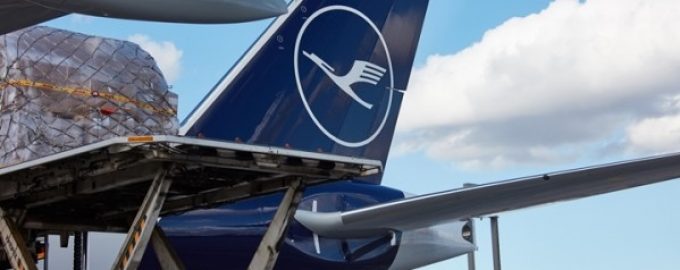Bottlenecks and price hikes as airlines now avoid Iran airspace
Asia-to-Europe airfreight could face extreme bottlenecks and price hikes due to the rising tension in ...

The air cargo industry’s paper chase continues – but with less fanfare, and at a greater pace than before.
American Airlines Cargo is now up to 75% e-air waybills (eAWB) on compliant trade lanes – finding that its decision to charge forwarders fees, an idea pioneered by Lufthansa Cargo – was working.
“When we will get to 100%? That’s the question I keep asking,” said Rick Eliseon, president cargo. “It’s difficult, sometimes you need a more localised approach.
“We find places like Hong Kong have a lot of penetration already, it’s really high. But it’s more difficult in Dallas, Chicago, which are big hubs with lots of players.”
The carrier has three waves in its strategy to get to 100% eAWBs. “We realised we wouldn’t get there in one bite,” said Mr Eliseson. “Smaller forwarders don’t necessarily want to invest, so we’ve implemented a portal they can use so they don’t have to invest themselves.”
While Lufthansa and AA, which began asking for fees for paper AWBs in 2017, have both said they hope not to collect a penny in fines, other carriers have remained sceptical about forcing customer change.
“We have a significant number of eAWBs now,” said Virgin Atlantic Cargo chief Dominic Kennedy. “There are geographical nuances to it – it’s coming to the fore in certain markets.
“eAWBs have a huge advantage for customers in operational efficiency,” but he added the carrier would not implement fees for paper.
“We are not in the business of telling customers what they can and can’t do.”
Lufthasna Cargo meanwhile, has developed its eFreight offering, enabling its customers to receive digital cargo acceptance. By using self-service terminals and apps, and the digital transfer of shipment data and status updates, customers can save time, it claimed.
It offers a PreCheck service before delivery to ensure the data is accurate and complete, and customers then receive a status update and the go-ahead to deliver or collect goods. Parcels are registered via scanner at some locations, determining size and weight.
The new offering has been piloted with about 100 customers, and is now available in Frankfurt and another 15 destinations, with the carrier rolling it out to more places in the coming months.
Comment on this article
Sam O E Okpro
June 13, 2019 at 7:55 pmWhilst it is encouraging to see the uptake of eAWB, the real challenge will be e-freight where the document owners will have to be fully responsible for the electronic transmission of pertinent documents. With the USA, EU, UK and Canada implementing their versions of the Pre-Loading Advance Cargo Information – PLACI program and the USA enforcing it’s Air Cargo Advance Screening – ACAS program starting effective 15Jun19, I am confident that more Countries will implement and enforce their versions of PLACI in the near future.
Given that we as an industry react very well to Regulatory enforcements, I believe that airlines charging forwarders for eAWB electronic transmission will be a short term successful strategy. We must now start preparing the SME Supply Chain Members to start document transmission of other documents (not just MAWB’s & HAWB’s) with cost effective platforms and be prepared to meet the PLACI requirement that Business Partners (Airlines / Freight Forwarders / GHA’s etc.) will need to have the necessary infrastructure in place to ensure the exchange of required data with the Authorities by:
– providing 24/7 point of contact for the communication of response protocols by the Authorities and
– exchange required data with each other electronically prior to shipment loading
We should start looking forward to e-freight and full digitization now that eAWB penetration will be improved by Regulatory enforcement.